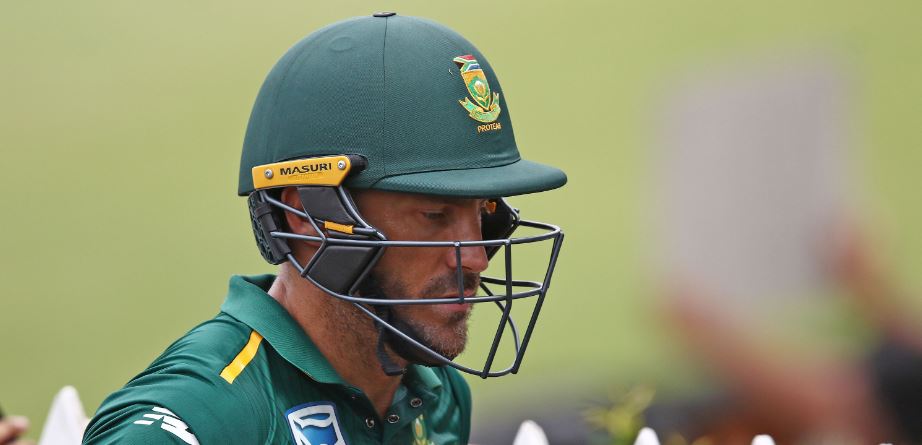Faf du Plessis’ pre- and post-match comments are really proving substantive lately – and speak of a future worthy of fans’ investment.
Faf du Plessis’ pre- and post-match comments are really proving substantive lately:
‘About a year or two ago, I wanted to transition from a good player to try and become a great player, so I challenged myself mentally that when I get to 30s and 40s, I want to make big runs. And that mental shift is really the difference.’ – 6 March.
‘If you’re doing okay, that’s not enough. We want those standards to be higher and better, because that’s what is going to be the difference. We can’t have a mediocre batting line-up and one or two guys performing at the World Cup.’ – 10 March.
The lip service that came with Test series defeat to Sri Lanka earlier this year has gone and, importantly, du Plessis is effectively walking the talk.
The recent recipient of 5,000 ODI runs and average of over 65 in the same format since 2017, du Plessis’ World Cup preparation has been in the making for two years. This year, this month, he’s fine-tuning development.
The timing is spot on, too, as the Proteas navigate appropriate support for Quinton de Kock – and look to offset Hashim Amla’s struggles en route to – and during – the World Cup in England and Wales. Du Plessis is a fitting mediator, toward the top and through the middle order, to de Kock’s abandon and Amla’s grapple.
While not as talented as predecessor AB de Villiers, du Plessis is evidently a better leader – and evidently has the subscription and belief of the squad and management at a key juncture for the player and country.
He, too, has publicly pre-empted a potential over-reliance on de Kock in the absence of de Villiers. India and Virat Kohli, Pakistan and Babar Azam, West Indies and Chris Gayle, England and Jason Roy and others should take example from this forewarning.
‘Sometimes you can in the back of your mind just rely on guys like that, and that’s not the way that I want us to play as a team. Everyone needs to contribute every single game. You’re not guaranteed a performance, but you need to be guaranteed of putting in the style of play, the hard work and raising your own intensity,’ notes du Plessis.
Again, its this mentality – well verbalised and increasingly evidenced – that shows du Plessis’ individual bid to grow from good to great extends to the collective, too. This is not an individualistic batsman, but a leader genuinely determined to achieve what no other Proteas captain – or, indeed, team – has in almost 30 years.
Photo: Gallo







